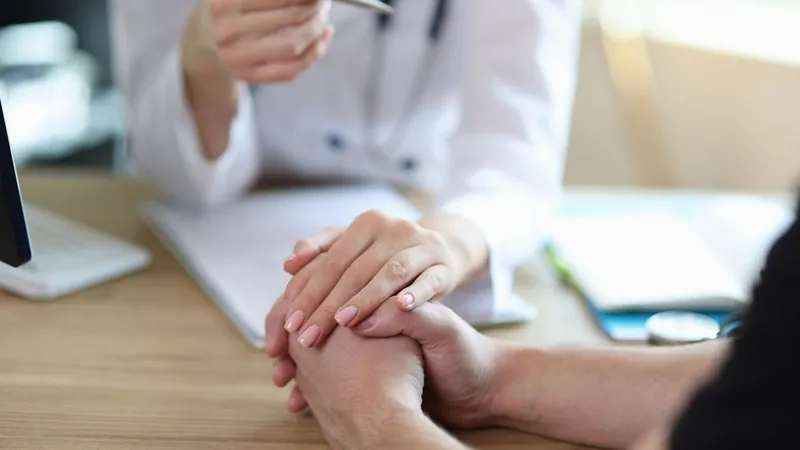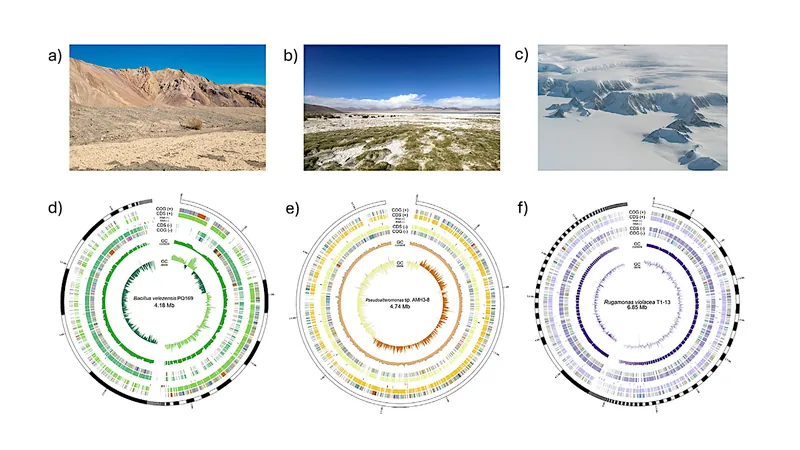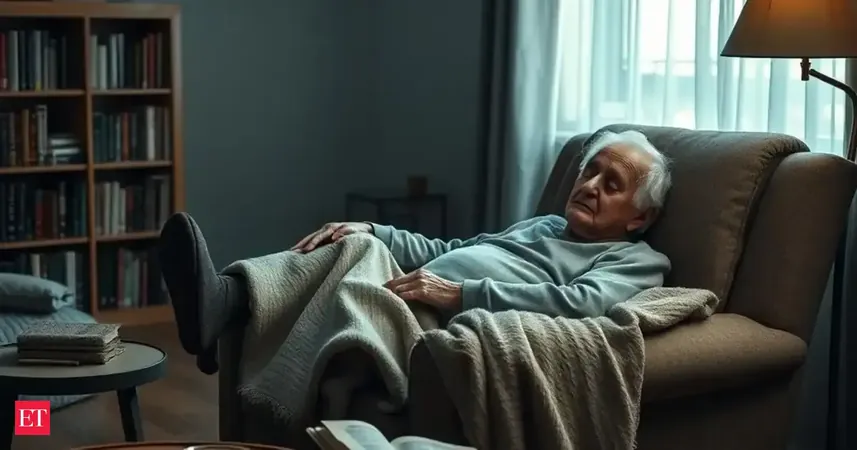
Unlocking Hope: How a Data-Sharing Project is Revolutionizing Rare Disease Diagnoses
2025-05-30
Author: Wei
A Child’s Struggle: Misdiagnosis and Fate
At just four years old, Arne Cavents faced a misdiagnosis that would shape his entire life. Growing up in a quaint Belgian town, he often felt different from his peers, grappling with medical issues that included surgery for inward-turning legs and struggles with basic tasks like tying his shoes and riding a bike.
A Long Road to Discovery
Initially believed to suffer from Charcot-Marie-Tooth disease (CMT), a hereditary condition that causes muscle weakness, Cavents's path to clarity wouldn’t begin until 2017. As he contemplated fatherhood, he sought definitive answers through genetic testing. But it took him five long years and multiple hospital visits before a mysterious result emerged.
In 2022, a breakthrough came when a doctor in Antwerp identified a unique gene mutation. Cavents was finally diagnosed with distal myopathy with early childhood onset, a rare condition affecting only about one in a million people. The long-awaited diagnosis brought him a profound sense of relief.
A European Initiative Changing Lives
Cavents's story is part of a broader European initiative designed to offer second chances to hundreds of patients with undiagnosed genetic conditions. These rare diseases, affecting fewer than five people per 10,000, often have genetic origins, complicating the search for answers.
On average, patients endure nearly five years of uncertainty before a diagnosis is reached—young patients often wait even longer, hindering their access to proper treatment. According to the European Organisation for Rare Diseases, diagnosis is the critical first step in a long journey towards managing these conditions.
Data-Sharing: The Key to Unlocking Genetic Mysteries
A groundbreaking study published in Nature Medicine illuminated the path forward. Researchers from 37 medical centers across Europe collaborated to share data and re-evaluate records from about 6,500 rare disease patients who lacked genetic confirmation. This initiative, dubbed Solve-RD, allowed them to leverage cutting-edge technology and global expertise to make significant advancements in diagnostic capabilities.
Richarda de Voer, a cancer genomics expert, articulated the transformative potential of this data-sharing initiative: "With novel software tools, existing data can yield new genetic diagnoses."
Real-Life Impact: Hope and Treatment
As a result of the Solve-RD program, over 500 individuals received diagnoses across a range of conditions, from neurological disorders to severe intellectual disabilities. Remarkably, 15% of these patients found new treatment options, while others gained a clearer understanding of their conditions and pathways for potential future therapies. Dr. Jonathan De Winter, Cavents’s doctor, reflected on the evolving landscape of rare diseases, stating, "These disorders are rare and genetic, but the narrative is changing rapidly."
New Beginnings and Future Possibilities
For Cavents, receiving a diagnosis was more than just an answer; it was an open door to fatherhood. With newfound knowledge, he and his wife can now monitor for genetic variants during pregnancy, granting them hope for a healthy family.
Though Cavents currently lacks treatment options, the life-changing nature of his diagnosis fills him with optimism. He humorously muses about potentially naming a future child after Dr. De Winter, grateful for the relief after a long and challenging road.
What’s Ahead for Genetic Research?
While the Solve-RD program concluded in 2024, its legacy lives on through the new European Rare Disease Research Alliance (ERDERA). This initiative aims to enhance the prevention, diagnosis, and treatment of conditions affecting Europe's 30 million rare disease patients, utilizing larger genetic datasets and cutting-edge genome sequencing.
Co-lead Alexander Hoischen emphasized the pressing need for effective solutions: "We are already more efficient at making diagnoses. We have the chance to scale this important work."
A Call for Broader Access
As researchers forge ahead, advocates urge for genetic reanalysis to extend beyond academic settings, enabling greater access in clinics nationwide. "We envision a significant increase in diagnosed cases," said Roseline Favresse, advocating for equal opportunities for all patients seeking a second chance at clarity.





 Brasil (PT)
Brasil (PT)
 Canada (EN)
Canada (EN)
 Chile (ES)
Chile (ES)
 Česko (CS)
Česko (CS)
 대한민국 (KO)
대한민국 (KO)
 España (ES)
España (ES)
 France (FR)
France (FR)
 Hong Kong (EN)
Hong Kong (EN)
 Italia (IT)
Italia (IT)
 日本 (JA)
日本 (JA)
 Magyarország (HU)
Magyarország (HU)
 Norge (NO)
Norge (NO)
 Polska (PL)
Polska (PL)
 Schweiz (DE)
Schweiz (DE)
 Singapore (EN)
Singapore (EN)
 Sverige (SV)
Sverige (SV)
 Suomi (FI)
Suomi (FI)
 Türkiye (TR)
Türkiye (TR)
 الإمارات العربية المتحدة (AR)
الإمارات العربية المتحدة (AR)